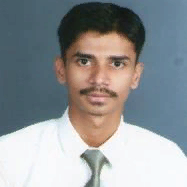International Journal of Image, Graphics and Signal Processing (IJIGSP)
IJIGSP Vol. 6, No. 10, 8 Sep. 2014
Cover page and Table of Contents: PDF (size: 1041KB)
Block-Based Compressive Sensed Thermal Image Reconstruction using Greedy Algorithms
Full Text (PDF, 1041KB), PP.36-42
Views: 0 Downloads: 0
Author(s)
Index Terms
Compressive sensing, greedy reconstruction, sensing pattern, Regularized Orthogonal Matching Pursuit
Abstract
This paper implements a block based compressive sensing technique for thermal image reconstruction using greedy algorithms. A total of fourteen different sensing patterns were tested for data acquisition. Orthogonal Matching Pursuit (OMP) and Regularized Orthogonal Matching Pursuit (ROMP) with two different thresholds were implemented for image reconstruction with OMP having an edge over ROMP in terms of error and PSNR. ROMP was faster in terms of iterations needed for reconstruction. As the threshold for ROMP was increased the number of iterations needed decreased. Gaussian, Bernoulli and Hadamard patterns were the best for reconstruction. Hadamard matrix, Bernoulli matrix with +/-1 entries and Bernoulli matrix with 0/1 entries have the added advantage of being more conducive for hardware implementation. This paper used Discrete Cosine Transform as the sparsifying basis for reconstruction.
Cite This Paper
Usham V. Dias, Milind E. Rane,"Block-Based Compressive Sensed Thermal Image Reconstruction using Greedy Algorithms", IJIGSP, vol.6, no.10, pp.36-42, 2014. DOI: 10.5815/ijigsp.2014.10.05
Reference
[1]Mark A. Davenport, et al, “Introduction to compressed sensing”, in Compressed Sensing: Theory and Applications, Cambridge University Press, 2012. [Amazon.com].
[2]Donoho D L., “Compressed sensing”, IEEE Transactions on Information Theory, vol. 52(4), pp. 1289-1306, 200.
[3]Dias, Usham, and Milind E. Rane. "Comparative Analysis of Sensing Matrices for Compressed Sensed Thermal Images", IEEE International Multi-Conference on Automation, Computing, Communication, Control and Compressed Sensing (iMac4s), pp. 265 – 270, 2013.
[4]Usham Dias, Milind Rane, S. R. Bandewar, “Survey of Compressive Sensing”, International Journal of Scientific & Engineering Research, Volume 3, Issue 2, February-2012, ISSN 2229-5518.
[5]Abhijit Mahalanobis, Robert Muise, “Object Specific Image Reconstruction using a Compressive Sensing Architecture for Application in Surveillance Systems”, IEEE transactions on aerospace and electronic systems, vol. 45, no. 3 July 2009.
[6]Wotao Yina, Simon Morganb, Junfeng Yangc, Yin Zhanga; “Practical Compressive Sensing with Toeplitz and Circulant Matrices”, Dept. CAAM, Rice University.
[7]Shunliao Yang, et al, “The Compressive Sensing based on Biorthogonal wavelet Basis”, IEEE International Symposium on Intelligence Information Processing and Trusted Computing, pp. 479-482, 2010.
[8]Fan Yang; Shengqian Wang; Chengzhi Deng; “Compressive Sensing of Image Reconstruction Using Multi-wavelet Transforms”, IEEE International Conference on Intelligent Computing and Intelligent Systems (ICIS), vol. 1, pp. 702 – 705, 2010.
[9]Gesen Zhang et al, “Compressed Sensing and Reconstruction with Bernoulli matrices”, IEEE International Conference on Information and Automation, pp. 455-460, 2010.
[10]Deanna Needell, “Topics in Compressed Sensing,” Dissertation for Doctor of philosophy in Mathematics, University of California, Davis, 2009.
[11]Philip Breen, “Algorithms for Sparse Approximation”, School of Mathematics, University of Edinburgh, Year 4 Project, 2009.
[12]Ming-Jun Lai, “On Sparse Solutions of Underdetermined Linear Systems,” Department of Mathematics, the University of Georgia, Athens, GA 30602, January 17, 2009.
[13]IEEE OTCBVS WS Series Bench. [Online]. Available: http://www.cse.ohio-state.edu/otcbvs-bench/.
[14]Radu Berinde, Piotr Indyk; “Sparse recovery using sparse random matrices”,MIT, April 26, 2008.
[15]Xingxiu Li, Zhihui Wei, Liang Xiao, Yubao Sun, Jian Yang, “Compressed sensing image reconstruction based on morphological component analysis”, IEEE 2009.
[16]Wu, J.; Liu, F.; Jiao, L. C.; Wang, X.; Hou, B., “Multivariate Compressive Sensing for Image Reconstruction in the Wavelet Domain: Using Scale Mixture Models”, IEEE Transactions on Image Processing, Vol.20, Issue 12 , pp. 3483 – 3494, 2011.
[17]E. Candes and T. Tao. “Decoding by linear programming”, IEEE Trans. Inform. Theory, vol. 51(12), pp. 4203-4215, 2005.
[18]Jean-Luc Starck, Fionn Murtagh, Jalal M. Fadili, “Sparse image and signal processing: Wavelets, Curvelets, Morphological Diversity”,Cambridge university press, 2010.
[19]Bubacarr Bah, “Restricted Isometry Property (RIP),” Graduate School of Mathematics, University of Edinburgh, First-Year Report, September 2009.

